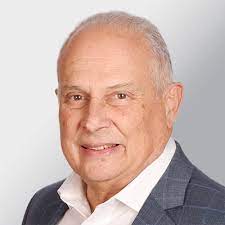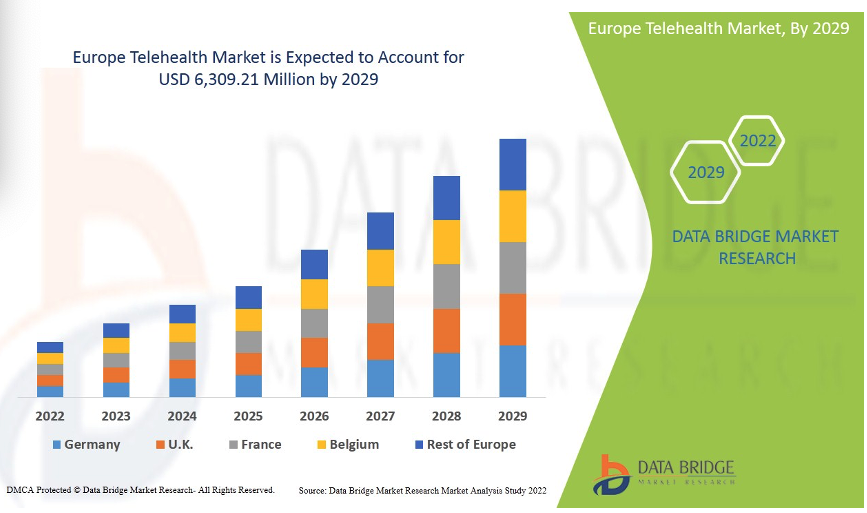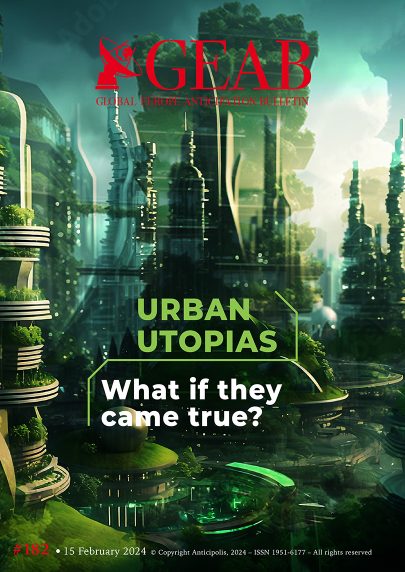GEAB 182
This month, our reader’s look on the future digs into technology and medicine through the AI and digital tools, only to get back to our most basic needs: health and human relationship. Philip Choban, the CEO of Telios Care, a Romanian telehealth specialised company, shares with us his insights on the future of healthcare, health research and technology and the divides between nations and generations that he and his company experience daily. Here is his insight on the future.

Telios Care was founded in 2018, based on a very personal experience, and to respond to a need in Eastern Europe. When my wife developed a genetic Alzheimer’s form, I ended up coming back to her home in Romania. I had to take care of her as a full-time job from 2007 through 2015. Having been an investor in early telemedicine in the United States, and my best friend being a physician, I could pick up the phone and get help, advice and even prescriptions. But I wondered what someone without this type of network does. And I know from taking my wife to clinics that we had to wait in long lines. Having been an entrepreneur my whole life, I gathered around a team, did some research work, and we figured that telemedicine would work out well in Eastern Europe too. I took the American way of doing things, which sometimes is the right way, sometimes the wrong way. In the US, the low hanging fruit was not the general public but the health insurers. We replicated that approach in Europe and today, after six years that we’ve been around, we have seven out of the nine health insurers as clients. The patients that we put in relations with the doctors are the insured by those companies. Basically, we took what has worked in the West for the past 30 years and we adapted it to the market here. After the pandemic hit our customer base went from about 20,000 up to close to 400,000. Today we have about 700,000 people in our system here and we’re the largest telemedicine provider in Southeastern Europe.
The way I see it, Artificial Intelligence will play a major role in telemedicine, it already is in radiology. Our systems are automated, we have a call centre thanks to which you can talk with a human being, and all the conversations go from voice to text and then AI draws out all the necessary points and the doctor only reads what he actually has to know. We’re not taking away people’s jobs but making the way for people to do their jobs more efficiently and simpler. What we wish to do is to professionally train them for higher and more fulfilling roles. The data that we gather in that process is going to benefit not only us, but also the health care system. We’re training our people to segregate this data and categorise them so it’s useful in a situation and accessible to the whole system. Health care systems, in many Western countries need to be revamped. AI and Large Language Models (LLM) can help doing so. The way I see the future of health care is AI and LLM giving everybody a chance to expand what they’re thinking now and look at the big picture. One of our ambitions is to provide the data that we get from the consultations to the whole health care system at European or global scale, so everyone can improve their knowledge and then their research.
It probably won’t happen in my lifetime, but I think that the world is heading towards a totally connected system of all the health care. From Asia, to Europe, to the United States, where you can learn about anything that’s not only happening here but also in China, in the UK, etc. We are already developing an application where people can upload all their health care data that they know about. It is safe and encrypted in blockchain, and this is only a start. This is the first step to put our data in one place and for patients to put theirs in one place. For now, the collaboration with other companies in foreign markets is very difficult because they don’t quite understand what we’re doing and why we’re doing it. We have a couple of other collaborators in Eastern Europe right now who have come on board but again the idea is so new it’s going to take time to build.
What I would want for the future is more health clinics coming on board and using a database that we can share back and forth to make every patient’s journey easier. We have strived for a system that makes your journey with us as simple and as easy and as quick as possible. I learned from one of the founders of Teladoc[1], in the US, who’s the biggest telehealth provider worldwide now, the objective is that from the time that you contact us to the time we resolved your need, and you get a prescription that is transferred to your pharmacy, it takes around 15 minutes.

Figure 1 – Estimates of European telehealth market by 2029. Source: Data Bridge Market Research
The culture in Eastern Europe has always been, for years, that if you didn’t feel good one of the first persons you called was your mom or dad. The medical act in most of Eastern Europe is described as a face-to-face conversation not a video one but going in person face to face where a doctor can touch see and feel everything. The main obstacle for us was to try and take that situation of people wanting to go to a doctor directly because this is what they were used to, this is what they were accustomed to. But the pandemic changed a lot about that. If it weren’t for the pandemic, we would be 25 years behind, for sure. Personally, I gave talks in hospitals, I went on the road and did speeches and showed how this works, and it’s still an obstacle. Now we have the barrier of the age groups also, the age group of 30 to 45 accepts this very well but above 60, people still show reluctance.
For those people we developed a home visit section where one of our nurses go to your house with instruments, she can do checks, echographs, blood tests, etc. Still, some patients are sceptical and ask, why a nurse and not a doctor? Consequently, I don’t think we will manage to fully convince this generation.
Also, the thing is that there’s a crisis, in Eastern Europe[2], in France too[3], of retirees and old age. The pension systems right now are stressed, and old people are lonesome. Loneliness is the number one mental and physical health deterrent of a person of that age group. We are also developing a programme for the elderly where we can go to their homes and do these things because the elderly are getting frail. The municipalities are looking for a way to cut the emergency visits down, so they approached us. Now with the city halls behind, we’re hoping to get through this hurdle with the old age groups also, therefore the municipalities reached out to the telemedicine specialists to go to the elderly’s homes… That’s a funny situation! Of course, in some cases there is no replacement for the presence of a human being in medicine.
Speaking for Telios, what we see as a deterrent right now are the wars in Ukraine and Gaza. For our new technologies, we have had to rely on investors for the most part. That investment money has dried up and seems to have been continually drying up, we’ve had to slow down immensely on our new product ideas and bringing new things to market that we know make sense because in other countries, they work. We don’t innovate anything ourselves. On the opposite, what has a positive impact on us is AI and LLM because it’s creating a whole new sector that didn’t exist before. And it’s giving people a chance to show a different side of themselves also and giving people a chance to use their own creativity, imaginations, something that they didn’t experience fully before. With all the new technology that’s being done, it’s giving people an opportunity to create their own way of doing things, so I just see a total change in attitude in a much more positive way. When we talk about breakthroughs everybody has in mind cancer but there’s a lot of other aspects. We expect major breakthroughs in cancer for one thing, but there is also Alzheimer, cardiac care, diabetes, for example there’s a Slovenian firm that does a genetic test that lets you know what vitamins and minerals your body is good at absorbing and which ones it does not, then it works on through AI to give you a diet based on this diagnosis[4]. We’re living in some exciting times, we’re reaching goals that mankind never even thought that they could reach so exciting future for the young generation is in sight. I’ve been through a lot of experiences in life, but this is by far the best experience that I’ve ever been through, because I continually learn and I can’t say that about my past.
Join also the GEAB Community on LinkedIn for more discussions on this topic.
____________________
[1] Teladoc Health announces fourth quarter 2023 financial results. Source, Globenewswire, 01.02.2024
[2] “Health is increasingly going online. But are some being left behind?” Source: Euronews, 05.09.2023
[3] « La télémédecine s’enracine et, avec elle, la régulation du secteur ». Source: Le Monde, 14.01.2024
[4] GenePlanet received Swiss funds to develop its Health Intelligence platform in order to integrate DNA and blood tests with personal information on nutrition health, sports, and mental well-being with the goal to help users to prevent diseases and improve their lifestyle.

The current surge in grandiose projects for cities conceived ex nihilo as pure utopias is a sign of the times... ... a characteristic signal of multiple and simultaneous ruptures: the [...]
As we diligently observe the geopolitical shifts in our world each month, the analysis of futuristic city projects and new urban developments proves to be exceptionally revealing. Like dreams, these [...]
We find ourselves precisely where we depicted the painful and violent transition to the world after, with what we referred to as the return of the logic of force in [...]
Hit by the Western mega-crisis, with all escape routes blocked, Germany must reinvent urgently its economic model to stop its decline. After the Allied victory over Hitler, the US and [...]
Egypt lies at the crossroads of trade routes, providing a link between two major regions: North Africa and the Arab countries. This strategic geographical position puts Egypt, in North Africa, [...]
Oil: Break the prices and we'll break you Expensive oil will be the norm in 2024. The GEAB has always believed that the arrival of the United States as the [...]

Comments